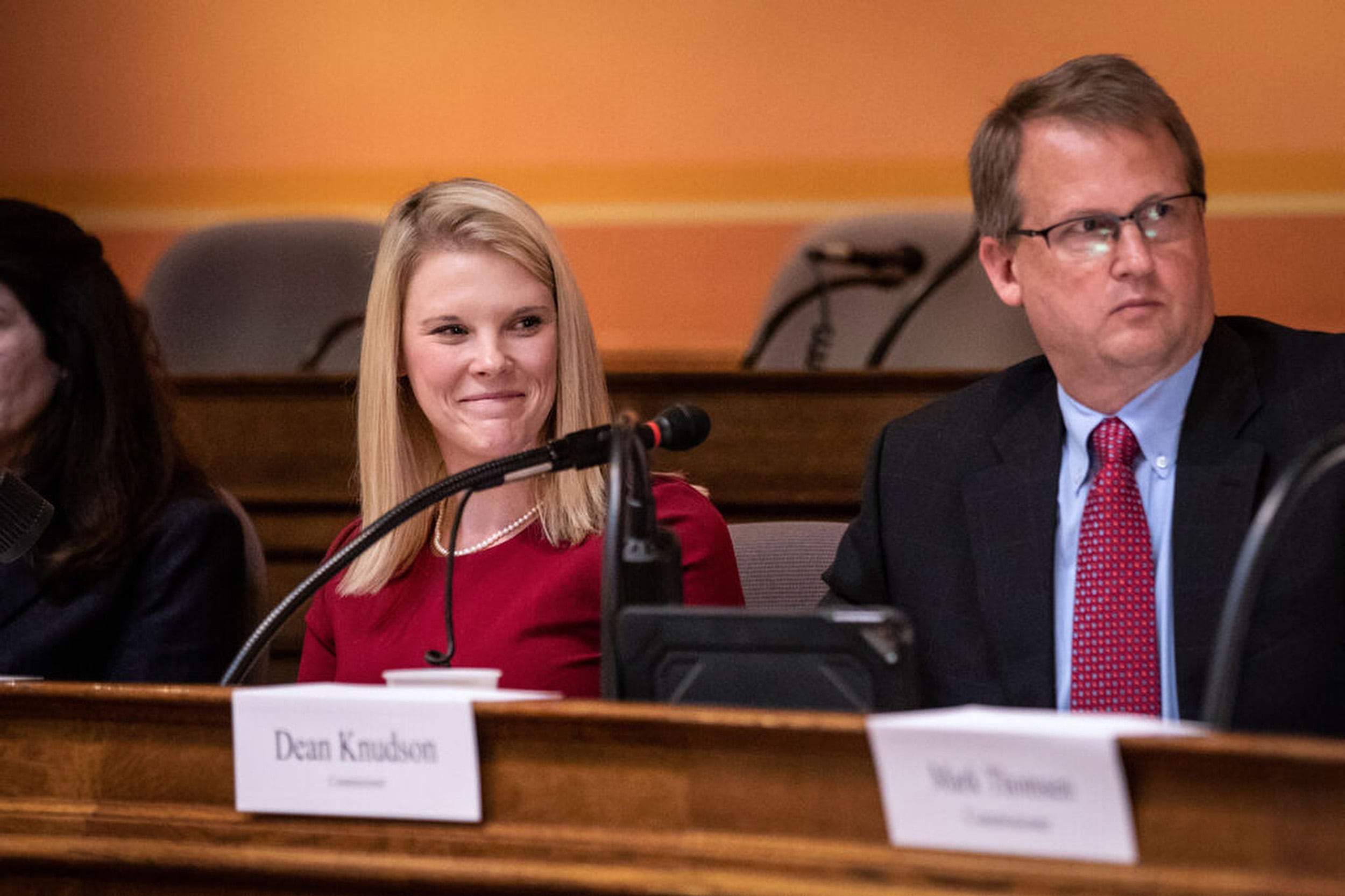Votebeat is a nonprofit news organization reporting on voting access and election administration across the U.S. Sign up for Votebeat Wisconsin’s free newsletter here.
What happened? The Wisconsin Supreme Court unanimously ruled Friday that the state’s chief election official, Meagan Wolfe, can stay in her job even though her term has expired, heading off a yearslong effort by some Republicans to oust her.
The court found that although Wolfe’s term expired in 2023, the Wisconsin Elections Commission had no duty to reappoint or replace her, because her position isn’t vacant.
What’s the dispute? Wolfe became the Wisconsin Elections Commission’s administrator in 2018 after working for the agency and its predecessor in other roles, and has been a holdover appointee since the summer of 2023. She is considered one of the most respected — and scrutinized — election officials nationwide, but she became a Republican target after President Donald Trump lost Wisconsin in the 2020 election and took heat for the commission’s decisions in administering that election.
The case focuses not on Wolfe’s performance as administrator, but rather on the legality of appointees staying on after their terms expire.
Wolfe’s four-year term expired in July 2023, and the Republican-led state Senate appeared poised to reject her confirmation if the Wisconsin Elections Commission had voted to reappoint her. All three Republicans on the commission voted to reappoint Wolfe, but the Democratic commissioners abstained from the vote. They cited a 2022 Wisconsin Supreme Court ruling stating that appointees can stay in their roles past the end of their terms. That meant Wolfe wasn’t formally reappointed, and therefore not subject to another Senate confirmation proceeding. Still, Senate leaders took a vote to fire her.
Who are the plaintiffs and defendants? After the Senate voted to fire her, Wolfe and the Wisconsin Elections Commission sued Senate Majority Leader Devin LeMahieu, a Republican who pushed for the ouster. The lawsuit, first filed in Dane County Circuit Court, also names former Senate President Chris Kapenga and Assembly Speaker Robin Vos, both Republicans, as defendants.
What are they asking for? Wolfe and the commission asked the court to declare that she was properly continuing in her role, and that the commission didn’t have to appoint an administrator just because her term had expired. Republicans asked the Wisconsin Supreme Court to require the commission to appoint an administrator, a move that could have led to Wolfe’s ouster.
“WEC does not have a duty to appoint a new administrator to replace Wolfe simply because her term has ended,” conservative Wisconsin Supreme Court Chief Justice Annette Ziegler said.
What happens now? The decision doesn’t mean Wolfe will be in her role indefinitely, but it also doesn’t force her out of it. The commission can still choose to reappoint Wolfe or somebody else in the future, or she can also choose to leave.
After the 2024 election, Wolfe told Votebeat that she has “no immediate plans to leave” if she wins this case and continues having commissioners’ approval. She said she would reconsider that if her position makes it harder for the commission to operate or receive state financial support in the upcoming budget.
Read more Votebeat coverage about Wolfe:






